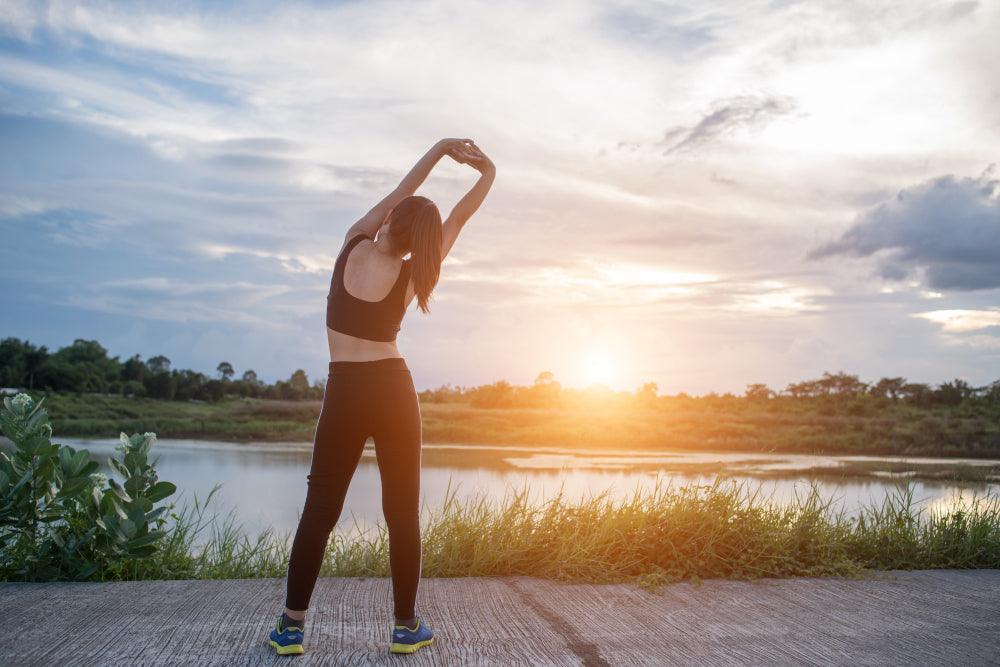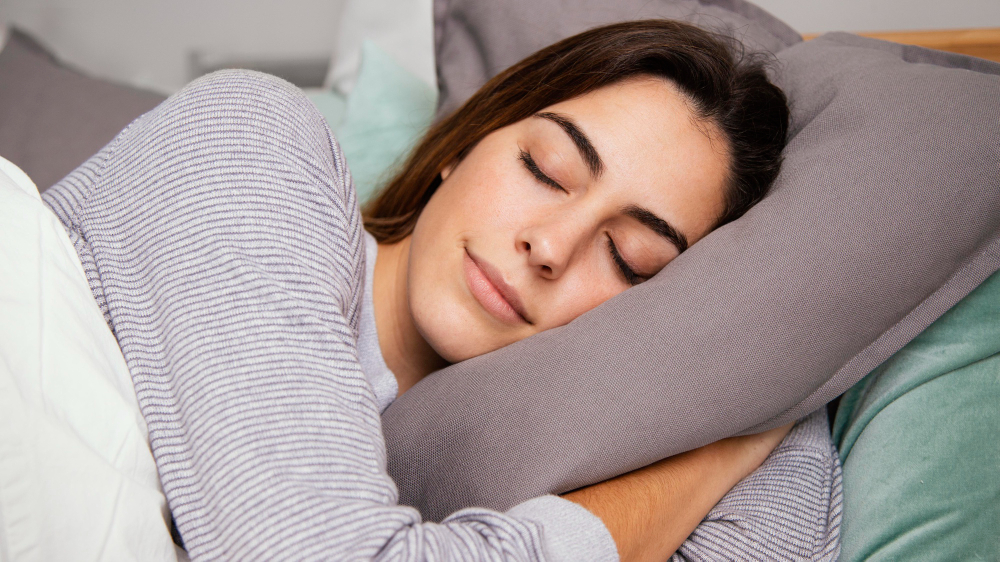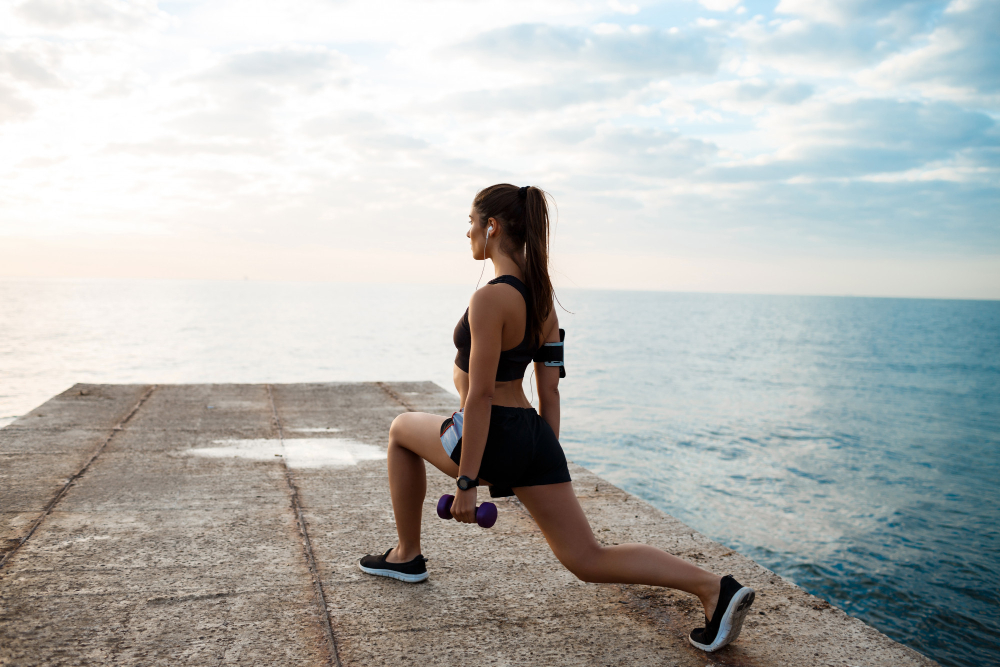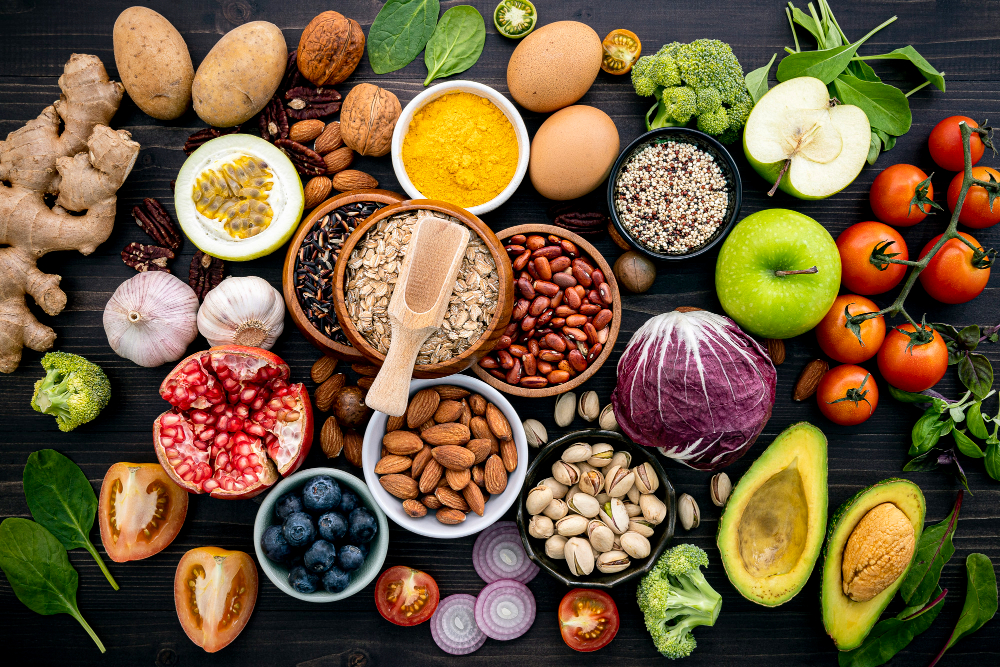11 Ways to naturally boost energy levels



It sometimes feels like the only way to get energy is via unhealthy methods such as energy drinks. However, in this article, we'll look at 11 ways to boost energy levels naturally.
Our first tip might sound obvious, but you'll be amazed at how many people fail to follow this (seemingly) simple piece of advice.
When we sleep, our body makes all the repairs it cannot make whilst we're awake. So if you do not sleep enough, you will be more tired during the day, your immune system will be weaker, your muscles won't grow as much, and you'll become more susceptible to depression.
The best way to ensure you sleep enough is to have rules around your bedtime. I know most of our readers are grown-ups, but that doesn't mean you shouldn't have a set time when you ought to go to bed.
Make sure you have an allocated sleep time, no less than 7 hours before your alarm goes off. Then, one hour before your allocated sleep time, make sure that you've turned all blue light devices off and do something like reading for an hour or so.
Even with a limited amount of rest, sleeping can improve in certain situations. Research shows that sleeping later helps reduce blood sugar levels and lowers blood sugar spikes. If your sleep is poor, you should avoid high-sugar breakfasts, like cereals or bread; they can increase your blood glucose levels and cause diabetes.

Here are some other pieces of advice we have on making sure you have a satisfying wind-down routine.
Some people have this notion that exercise makes you tired. However, actually, the opposite is true.
Exercise, be that through playing a sport, going to the gym, or just walking around the block, is a fantastic way to get your blood pumping. It gives you the energy you need to get through the day.
Walking helps to reduce fatigue. A minimum 150-minute exercise schedule is essential for long-term health. This activity can be split over several weeks to make them more manageable. Exercise can also enhance sleep boosting energy levels.

Stress is a part of life. Very few people live their lives completely free of it.
However, it's important to remember that everyone's brain has a limited capacity. And suppose your stress gets so overwhelming that it takes so much of your time that you are tired whenever it's time to do anything else. In that case, you should seek methods of reducing your stress.
For some people, this could mean cutting down on their work hours or doing one of the various types of talking therapy.
It could even be worth talking to your doctor about the potential medication you could take to reduce stress.
It would certainly be difficult to remove the stress completely from our everyday lives. It is crucial for your health to manage your stress levels and improve your mood. Stress has negative consequences for the digestive system.
I know; with almost every health article you click on, not smoking always seems to pop up.
However, studies have indicated that smoking can genuinely be bad for your energy levels. When lots of oxygen is pumping around your body, your cells have the energy to perform all of their processes.
However, where do your blood cells get their oxygen from? The lungs!
When lungs become damaged by the tar and toxins in cigarettes, their efficiency decreases. And with less efficient lungs, there is less oxygen to go around your body, and hence, less energy.
See our Quit Smoking Page here.
Many people make the mistake of drinking alcohol before bed to help them get to sleep. However, whilst this might seem like a good idea, drinking alcohol can worsen the quality of your sleep and make you tired throughout the day.
Alcohol is a sedative, so yes, it may cause you to sleep more quickly. However, because it's also a diuretic, it causes you to wake up in the middle of the night needing to urinate.
As the old saying goes, "you are what you eat".
Whenever you eat something, the vitamins, minerals, and other nutrients inside your food get processed by the digestive system, broken down, and form the cells that make up our bodies.
They also provide us with the energy we need to survive.
Junk food is often high in salt and sugar. When you first eat it, your body's sugar levels spike, but as this sugar is fast-acting, it will quickly go down again and lead to a sugar crash.
Eating slow-release carbohydrates, such as pasta or wholemeal bread, is much better.
Avoid consuming sugary or caffeine drinks and start your day with healthy foods. If you are eating foods containing high amounts of carbohydrates or proteins, it means using them for energy instead relying on stimulants for a quick energy boost.
Add healthier high-energy foods into the food to increase the blood sugar levels and reduce excess sugar fluctuations and dips.
In addition, avoid reaching for anything less healthy at any point during the eating cycle by planning ahead. Add a couple of foods that increase our metabolism for meals.

The brain is the control centre of our entire body. So if the brain, for whatever reason, is slow, the rest of the body will be slow too.
The majority of the brain is made of water. Therefore, to maintain its maximum efficiency, we must provide the brain with enough of it.
A lack of water can also impact the blood flow to our brains. Blood is mostly water, so a lack of water means a lack of blood flow.
The use of water can help in the relaxation of our minds. During dehydration, fatigue is triggered by oxygen obstructing your brain and your heart working harder to pump blood into your body, resulting in fatigue.
This is why keeping hydrated throughout the day is vital. Although you might forget to drink a glass of water, it's always a good habit to carry a water bottle with you wherever you go. Besides these bottles, there are also several sizes to monitor water consumption.

If I were to give you a backpack filled with bricks and ask you to carry it around all day, I would guess that it would require a lot of energy, and you might be rather tired throughout most of that day.
Although most people don't have a backpack of bricks they have to carry around, many people need to carry around excess body weight.
The extra body weight causes you to become tired since you're using more energy than most people for everyday tasks.
We respect that losing weight is much easier said than done. However, it's wise to talk to your doctor about the healthiest ways to do so.
To see our Weight Loss Page, click here.
Did you know that around 8% of British citizens don't eat breakfast? And I wonder how many more people have a cup of coffee and call it "breakfast".
However, eating breakfast in the morning is an essential part of making sure you have enough energy to get you through the day. Whether you have eggs, a full English Breakfast, cereal, or whatever you like, just make sure that you eat something!
As we mentioned earlier, whenever you eat food, your body will use the energy from that food to power you, from your brain to your bones.
And finally, cut out caffeine.
Yes, initially, you may find yourself more tired, but that's because your body has become dependent on caffeine.
If you slowly cut it out, your body becomes used to not needing it, and your energy levels naturally start to become high without it.
Coffee and other caffeinated drinks are able to increase your energy levels and can leave you feeling even more tired after the effect wears off. Caffeine has no permanent effect and can result in dependency. As our bodies become less affected you'll want more coffee. In other words, excessive caffeine can cause anxiety, increase blood pressure, and can make sleeping harder. How many calories do we get when we drink our caffeine daily? Think about buying prepared drinks or mugs for drinking coffee or tea or coffee to make your coffee more comfortable.

Along with the abovementioned tips, one additional aspect of maintaining good mental health is having a social life. Human beings are naturally social animals, even introverts. When we lack this social connection with other people, it can lead to loneliness, often a precursor to depression. And depression can lead to you having lower energy levels. Thus, it's essential to maintain a good social life to maintain good energy levels.
To see our Energy and Fatigue Blood test, click here.
To see our Health and Lifestyle Blood test, click here.
For a full range of blood tests and medications, visit our Welzo Online Pharmacy Page. For more details, click here.










Plus get the inside scoop on our latest content and updates in our monthly newsletter.